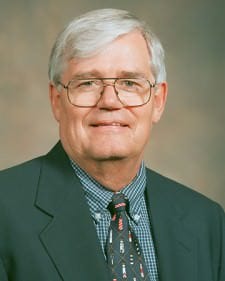by Dr. L. John Van Til


Grove City, PA -(AmmoLand.com)- President Obama’s address at Hiroshima, Japan on May 27 provides us with a good opportunity to examine his foreign policy attitude and contrast it with the views of one of America’s most courageous war-time presidents—Harry S. Truman.
This exercise has three steps: a look at Obama’s thought, a briefer summary of Truman’s views, and then a comparison of the two.
First, Obama’s view. Before Obama embarked on his trip to Japan, many Americans had an uneasy feeling that he might apologize to the Japanese people for America’s dropping the atomic bomb on Hiroshima 71 years ago. And what was the basis of this unease?
Many citizens think a first principle of Obama’s foreign policy agenda—since the day he took office—has been to change its direction. It began with his notorious Cairo University speech on June 4, 2009. He inferred that he had a mission to bring peace to the world which could only be accomplished if America apologized for its former foreign policy sins, beginning with Muslims.
Thus, with confidence he said early in that talk, “I have come to Cairo to seek a new beginning between the United States and Muslims around the world.”
To emphasize the obvious, he here implies that relationships had been poor before.
In the Cairo talk he also implied that he was especially qualified to speak to Muslims because his father was Kenyan born and for generations his family had been Muslims.
What evidence is there that Obama apologized at Hiroshima? Though the talk rambled, he called the invention of the atomic bomb “a great scientific achievement.” Yet, “the splitting of the atom requires a moral revolution.” Further, “We must change our mindset about war itself.” And, we can also see Hiroshima and Nagasaki as “the start of our own moral awakening.” It’s difficult to avoid the conclusion that Obama here condemns the use of the atomic bomb, his oblique way of apologizing for its use. And, more. If America needs a moral awakening now, apparently it had not been moral during the Truman presidency.
Within hours of being sworn in as president on April 12, 1945 Harry Truman was informed for the first time that an atomic bomb existed and that a test of it would be ready soon. Its destructive power was virtually uncertain. A few days later Truman learned that the Germans were about to surrender. They did on May 7. In the wake of this, Allied leaders met at Potsdam, Germany on July 17 to discuss post-war Europe. There Truman received word that the atomic bomb test was successful. The conference issued an ultimatum to Japan that they agree to an unconditional surrender or face more destruction than had ever been visited upon any nation. Japan ignored this ultimatum.
Returning home, Truman pondered estimates of death and destruction that America was prepared for by conventional war methods—new fire bombs had already killed hundreds of thousands of Japanese. Several million more people would likely die and material destruction would push Japan back towards the Stone Age. Truman, therefore, decided that use of the atomic bomb was the better moral choice: It would actually cause much less death and destruction. The bomb was dropped on Hiroshima on August 6, 1945. After no reply from Japan to his request for surrender, Truman ordered the bombing of Nagasaki three days later. Unconditional surrender soon followed.
No other American president has ever faced such grave challenges in so short a time. Man of principle that he was, Truman never had any regrets about the moral correctness of this decision.
What happens when we compare the attitudes of Obama and Truman on matters of foreign policy, specifically on the use of the atomic bomb?
Historians of foreign policy use two main categories in their analysis—Idealists and Realists. Idealists as children of the Enlightenment believe that men are essentially good, not hopelessly corrupt, that they can be led to ideal goals by diplomacy and good will by visionary leaders. Realists, on the other hand, have a traditional view of human nature; that is, that men are naturally prone to evil and that government exists to check this tendency. Realists accept present imperfect conditions as unlikely to change easily. Thus, the better part of wisdom is to prepare for what may happen rather than to base action on, and have faith in, what should happen.
What occurs when we examine the views of Obama and Truman in terms of Idealism and Realism?
Clearly, Obama falls into the camp of Idealists. This is evident in the Cairo talk when he said that he was there to bring peace. Implicitly, other American presidents had, of course, failed, or so he thought. His idealism was also evident in his Hiroshima remarks when he said that the splitting of the atom “requires a moral revolution” and at the end of which he called for “a moral awakening.” As noted above, this kind of statement implies that the use of the bomb was immoral. This attitude can only be characterized as “unrealistic,” as idealistic.

To make the difference between these two presidents clear, ask yourself: If Obama had been President in 1945, would he have used the atomic bomb?
About the Author:
Dr. L. John Van Til is a fellow for humanities, faith, and culture with The Center for Vision & Values at Grove City College. His latest books are “Thinking Cal Coolidge,” and “The Soul of Grove City College: A Personal View.”
